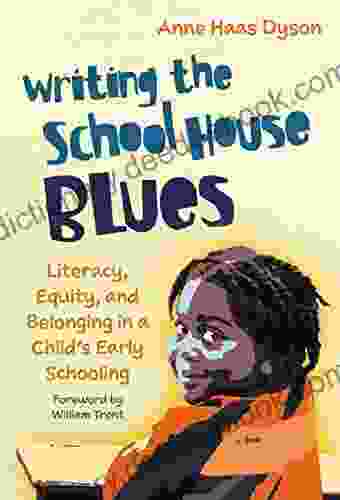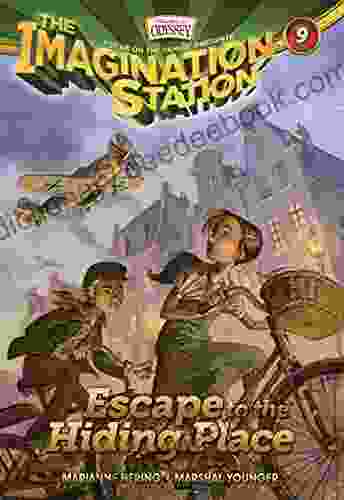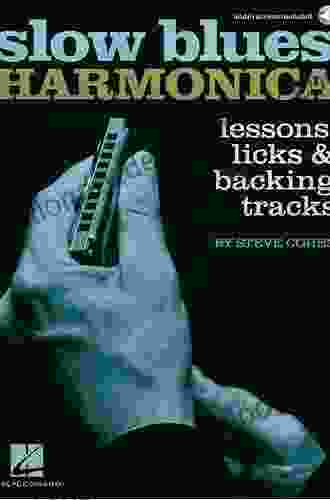Literacy Equity and Belonging in Child Early Schooling: Language and Literacy

5 out of 5
| Language | : | English |
| File size | : | 4897 KB |
| Text-to-Speech | : | Enabled |
| Screen Reader | : | Supported |
| Enhanced typesetting | : | Enabled |
| Word Wise | : | Enabled |
| Print length | : | 191 pages |
Literacy is a fundamental skill that is essential for success in school and in life. It allows us to communicate, learn, and participate fully in society. However, not all children have the same access to quality literacy instruction. Children from low-income families, children of color, and children who are English language learners are more likely to experience inequitable literacy practices that can hinder their development.
This article explores the importance of literacy equity and belonging in child early schooling, focusing on language and literacy. We will discuss the impact of inequitable literacy practices on children's development and provide strategies for creating more equitable and inclusive learning environments.
The Importance of Literacy Equity
Literacy equity means that all children have the opportunity to develop their literacy skills to their full potential, regardless of their background or circumstances. This includes having access to high-quality literacy instruction, resources, and support.
Literacy equity is important for a number of reasons. First, it is essential for children's academic success. Children who are not able to read and write proficiently are more likely to fall behind in school and struggle to keep up with their peers. Second, literacy is a key factor in social and economic mobility. Children who are literate are more likely to graduate from high school, go on to college, and get good jobs. Third, literacy is essential for civic engagement. Children who are able to read and write can participate fully in society and make informed decisions about their lives and communities.
The Impact of Inequitable Literacy Practices
Inequitable literacy practices can have a devastating impact on children's development. Children who are not exposed to high-quality literacy instruction are more likely to fall behind in school and struggle to keep up with their peers. They are also more likely to experience social and economic disadvantages later in life.
There are a number of factors that can contribute to inequitable literacy practices, including:
* Poverty: Children from low-income families are more likely to attend schools that are underfunded and have less access to resources. * Race: Children of color are more likely to be suspended or expelled from school, which can lead to them missing out on valuable learning opportunities. * English language learners: Children who are English language learners often struggle to access literacy instruction in their native language.
These are just a few of the factors that can contribute to inequitable literacy practices. It is important to be aware of these factors so that we can work to create more equitable and inclusive learning environments for all children.
Strategies for Creating More Equitable and Inclusive Learning Environments
There are a number of strategies that we can use to create more equitable and inclusive learning environments for all children. These strategies include:
* Providing high-quality literacy instruction to all children: All children deserve access to high-quality literacy instruction that is tailored to their individual needs. This instruction should be based on sound research and should be delivered by qualified teachers. * Creating a welcoming and supportive learning environment: All children need to feel safe, respected, and valued in their learning environment. This means creating a classroom where all children feel like they belong. * Valuing diversity: It is important to value diversity in our classrooms and to recognize the strengths that each child brings to the learning community. We should celebrate the different languages, cultures, and experiences that children bring to school. * Providing access to resources: All children need access to the resources they need to succeed in school. This includes access to books, technology, and other learning materials.
By implementing these strategies, we can create more equitable and inclusive learning environments for all children. This will help to ensure that all children have the opportunity to develop their literacy skills to their full potential and to reach their full potential in life.
Literacy equity is essential for the success of all children. By creating more equitable and inclusive learning environments, we can help to ensure that all children have the opportunity to develop their literacy skills to their full potential and to reach their full potential in life.
5 out of 5
| Language | : | English |
| File size | : | 4897 KB |
| Text-to-Speech | : | Enabled |
| Screen Reader | : | Supported |
| Enhanced typesetting | : | Enabled |
| Word Wise | : | Enabled |
| Print length | : | 191 pages |
Do you want to contribute by writing guest posts on this blog?
Please contact us and send us a resume of previous articles that you have written.
 Novel
Novel Page
Page Text
Text Genre
Genre Reader
Reader Library
Library Paperback
Paperback E-book
E-book Newspaper
Newspaper Bookmark
Bookmark Shelf
Shelf Glossary
Glossary Synopsis
Synopsis Annotation
Annotation Footnote
Footnote Manuscript
Manuscript Scroll
Scroll Tome
Tome Bestseller
Bestseller Classics
Classics Narrative
Narrative Thesaurus
Thesaurus Character
Character Librarian
Librarian Catalog
Catalog Card Catalog
Card Catalog Archives
Archives Periodicals
Periodicals Study
Study Scholarly
Scholarly Reserve
Reserve Academic
Academic Reading Room
Reading Room Interlibrary
Interlibrary Storytelling
Storytelling Awards
Awards Reading List
Reading List Book Club
Book Club Theory
Theory Textbooks
Textbooks K Curl
K Curl Avenged Sevenfold
Avenged Sevenfold Catherine Berry
Catherine Berry Katherine Marsh
Katherine Marsh Ben Curtis
Ben Curtis Alexander Hartung
Alexander Hartung Diane Rose Solomon
Diane Rose Solomon Kurt Gaubinger
Kurt Gaubinger Tom Mazorlig
Tom Mazorlig Knud Illeris
Knud Illeris Daniel J Healy
Daniel J Healy Melissa Joy Jonsson
Melissa Joy Jonsson David Chadwick
David Chadwick Shalimar Ali
Shalimar Ali Nikki Meyer
Nikki Meyer Alexander Loyd
Alexander Loyd Peggy Perry Anderson
Peggy Perry Anderson J Thomas Allison
J Thomas Allison Jamie Raine
Jamie Raine Redie Bereketeab
Redie Bereketeab
Light bulbAdvertise smarter! Our strategic ad space ensures maximum exposure. Reserve your spot today!

 Robbie CarterKnocking Up His Nanny: A Scandalous Tale of Seduction and Forbidden Love on...
Robbie CarterKnocking Up His Nanny: A Scandalous Tale of Seduction and Forbidden Love on... Ismael HayesBrad Paisley Guitar Play Along Volume 117: Master the Techniques of a Country...
Ismael HayesBrad Paisley Guitar Play Along Volume 117: Master the Techniques of a Country... Enrique BlairFollow ·11.2k
Enrique BlairFollow ·11.2k Harry HayesFollow ·17.9k
Harry HayesFollow ·17.9k VoltaireFollow ·19.6k
VoltaireFollow ·19.6k Israel BellFollow ·10.8k
Israel BellFollow ·10.8k Brody PowellFollow ·17.7k
Brody PowellFollow ·17.7k Joseph HellerFollow ·9.6k
Joseph HellerFollow ·9.6k Raymond ChandlerFollow ·9.1k
Raymond ChandlerFollow ·9.1k Grayson BellFollow ·19.5k
Grayson BellFollow ·19.5k

 Jerome Powell
Jerome PowellBarbara Randle: More Crazy Quilting With Attitude -...
A Trailblazing Pioneer in...

 Jan Mitchell
Jan MitchellLapax: A Dystopian Novel by Juan Villalba Explores the...
In the realm of dystopian literature, Juan...

 Rodney Parker
Rodney ParkerOur Mr. Wrenn: The Romantic Adventures of a Gentle Man
Our Mr. Wrenn is a 1937 novel...
5 out of 5
| Language | : | English |
| File size | : | 4897 KB |
| Text-to-Speech | : | Enabled |
| Screen Reader | : | Supported |
| Enhanced typesetting | : | Enabled |
| Word Wise | : | Enabled |
| Print length | : | 191 pages |














